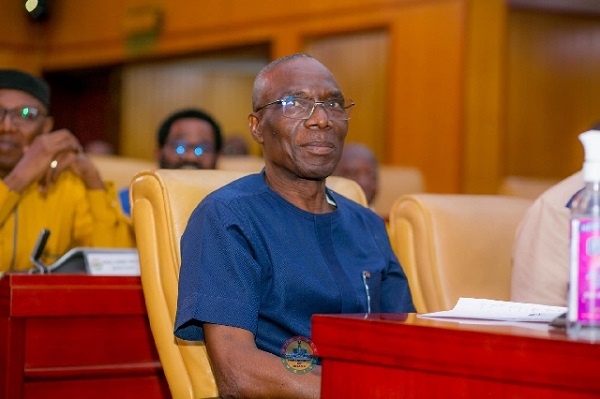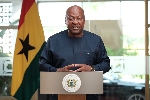Gov’t indebtedness on Free SHS reaches GHS 6bn – Nortsu-Kotoe
 Peter Nortsu-Kotoe
Peter Nortsu-Kotoe
The government's Free Senior High School (FSHS) programme, initially introduced in 2015 under a progressively free approach outlined in Ghana's 1992 Constitution, is currently encountering significant financial challenges.
Mr. Peter Nortsu-Kotoe, the Ranking Member on the Parliamentary Select Committee on Education, highlighted these issues in a statement dated July 17, 2024.
Mr Nortsu-Kotoe revealed that the government is indebted to various entities with over six billion Ghana cedis (GH₵ 6,000,000,000.00) linked to the FSHS programme.
He pointed out that the initiative commenced with day students nationwide entering Senior High Schools during the 2015/16 academic year.
Subsequently, in September 2017, the government expanded the programme to cover first-year students in both day and boarding categories for the 2017/18 academic year.
However, the expansion incurred substantial costs that were inadequately planned for in subsequent years.
‘The initial year experienced minimal financial challenges due to funds carried forward from the previous administration under President John Dramani Mahama.
However, subsequent years faced severe financial crises, exacerbated by the non-release of funds to schools for recurrent expenditures such as food supplies, school uniforms, utilities, and infrastructure maintenance’ he explained.
The increasing student population each year necessitated the introduction of the double-track system in many schools due to insufficient infrastructure, a situation that could have been alleviated if the E-blocks initiated by the former administration had been completed, he argues.
Mr Nortsu-Kotoe underscored that the government's debt includes overdue payments to the West African Examinations Council (WAEC) for the registration of candidates for the 2022, 2023, and upcoming 2024 West African Senior School Certificate Examinations (WASSCE), totalling GH₵ 224,857,713.00.
He warned that failure to settle these arrears immediately jeopardizes the timely conduct of these examinations.
Furthermore, the recent introduction of the one-student one-tablet policy by the Vice President and the Minister for Education has added to the financial strain.
The procurement cost for 1,350,000 tablets at USD 250.00 each totals USD 337,500,000.00, equivalent to GH₵ 5,062,500,000.00.
However, less than ten percent of this amount has been paid to the supplier, with minimal provision allocated in the 2024 budget for further payments.
Additionally, there is outstanding debt amounting to GH₵ 300,000,000.00 owed to suppliers of food items, textbooks, school uniforms, and furniture.
Mr Nortsu-Kotoe stressed that failure to address these financial obligations promptly could lead to the collapse of many businesses and industries associated with the FSHS programme.
Source: Classfmonline.com/Cecil Mensah
Trending News

2 lovers arrested over setting apartment ablaze at Oyarifa Anointed Down
23:59
Police bust suspected illegal arms deal, recover CZ rifle
23:12
GA/R: Tabora landlord arrested for allegedly aiding MoMo and BEC scams
00:04
Ghana is “rising again,” President Mahama declares in 2026 New Year message
21:45
V/R: 15 arrested after sporadic shooting at Ho central mosque, 7 hospitalised
12:19
A/R: Police arrest suspect for conspiring to commit robbery at Manso Abrense
21:27
GoldBod dismisses claim of losses as “imaginary”
12:00
2024 Adabraka ₵7.5m daylight jewellery shop robbery: Police arrest suspect
19:29
141 arrested in major cybercrime crackdown targeting MoMo fraud, online scams
10:36
Tema police foil robbery attack at Afienya-Mataheko
00:04



